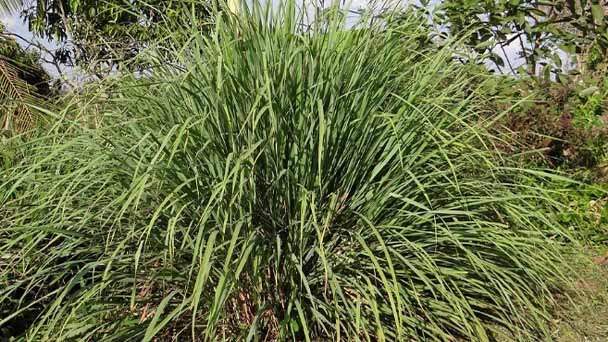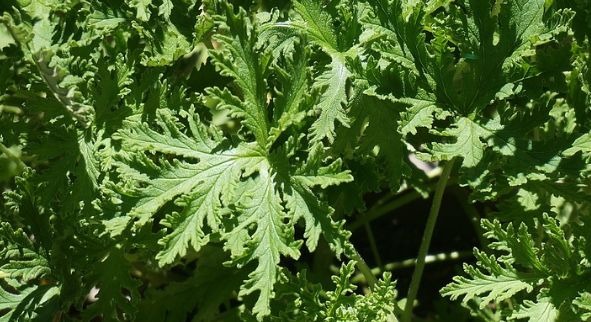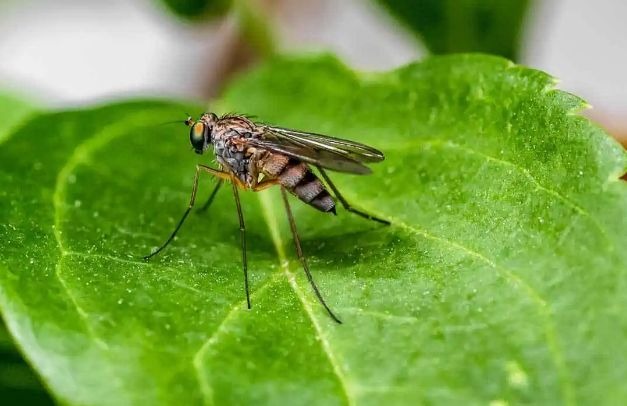Does Citronella Repel Flies - How to Keep Flies Away Easily
Written by Ivy
Jan 07 2023

Citronella is a fantastic, plant-based, natural insect repellent that is frequently used to ward off flies and other insects. Citronella's aroma works to cover up any other smells that would typically attract flies, making it challenging to find and locate those alluring stinky scents that draw flies in, whether in plant, oil, or candle form.
You can use citronella in a variety of wonderful ways to deter flies in both indoor and outdoor areas. Read on to learn more and get a brief introduction to citronella and flies.
Does Citronella Repel Flies?
While many people think of citronella as a mosquito repellent, citronella can also repel flies. By "flies," we refer to any flying insect, including crane flies, fruit flies, and green flies. A swarm of flies hovering over your food can quickly ruin a fun summer picnic or barbecue, but citronella has proven to be an effective deterrent that doesn't require using harsh chemicals around people or food.
Citronella deters flies in what way? The secret is that flies abhor this scent above all others. Citronella works to mask the kinds of smells that flies find irresistible, much like how you might use a candle, spray, or floor cleaner with a lemon scent to cover up unpleasant odors.
A swarm of flies will quickly gather at your picnic table or backyard patio when the aroma of grilled hamburgers, potato salad, desserts, or even the smell of human sweat is present. If the flies can't smell the food, they won't be enticed to come over and investigate. Citronella's potent, citrus scent works to mask these mouthwatering odors.
What is Citronella?
The leaves of the citronella geranium and citronella grass are the source of the oil known as citronella. Citronella oil is frequently added to candles, bug repellents, and sprays as a plant-based, natural alternative to keep insects at bay.
On the evergreen citronella grass plant, citronella oil is found naturally. The primary component used to deter flies and other insects is the oil on the plant.
There are many ways to introduce citronella into areas that require extra defense against flies and other insects, but let's first discuss the different kinds of citronella.
Types of Citronella Plants
Both citronella grass and citronella geranium are different types of plants. However, Citronella Grass is always mentioned in relation to citronella oil and the plant that is most effective at repelling insects.
Citronella Grass is the plant to go to if you're looking for some in your face, plant-based, insect-be-gone action. The plant itself is a beautiful addition to many gardens and is simple to use as a decorative element around landscaping while serving the purpose of warding off insects.
The foliage grows long and out and then down, giving you this hearty-looking, green delight with its rounded nature and what could be described as a clump of grass. However, there is a way to maximize their insect repellent power if you plant these young plants. To do this, crushing and crunching the leaves and agitating the foliage a bit will release the oil.
Despite belonging to the same plant family, citronella geranium is not very effective at deterring insects. Although it has lovely purple flowers, it won't be as effective as citronella grass.
Why You Should Consider Using Citronella to Repel Flies
For a variety of reasons, we strongly advise using citronella to deter flies.
It smells fantastic, to begin with. Its pleasant, citrusy scent is a nice change from some of the more pungent-smelling insect sprays that are available on the market.
Second, citronella is a much safer and more natural alternative to harsh chemical sprays. Citronella oil comes from citronella grass, making it generally quite safe to use.
Citronella comes in a variety of forms, which is another factor in our recommendation for flies. Citronella oil is a component of a wide variety of products, including candles, tiki torches, sprays, and essential oils. To make an all-natural, DEET-free fly repellent, you can even mix it with a carrier oil like coconut oil, olive oil, or jojoba oil.
In conclusion, using citronella is a secure, organic, and efficient way to ward off flies and prevent them from ruining your outdoor gatherings. It comes in a wide range of forms, is reasonably priced, and has a wonderful scent.
How to Use Citronella to Keep Flies Away Indoors
You might be curious about using citronella indoors if flies bother you inside your home. Yes, but before using citronella to keep flies away inside, there are a few restrictions and things to keep in mind.
Drops of citronella oil can be added to an aromatherapy diffuser as one method of using the herb indoors. While you can put the diffuser anywhere in your house where flies like to gather, it works best close to a window or door. Flies may be deterred from entering your home by the citronella odor.
Bringing a citronella plant inside is another way to use the fragrance in your home. This not only looks nice, but it might also help keep those pesky flies away. The citronella plant doesn't release its distinctive scent until it is touched, so if you choose this method, be aware of that. Just lightly touch the leaves to release its fly-repellent scent.
The one item that contains citronella that should never be used indoors is a candle. Despite the fact that citronella has a pleasant scent, these candles should not be used for aromatherapy or relaxation. They should only be used outside because doing so is dangerous.
Alternate approaches, such as using fly paper, eucalyptus oil, or malt vinegar, can be used if you're bothered by flies in your home. Even some bizarre devices, like fly vacuums and bug shooters, claim to be effective at preventing an indoor fly invasion. You might need to contact a pest control expert if the situation feels beyond your capacity.

How to Use Citronella to Keep Flies Away Outdoors
Use citronella to ward off flies outside, where it is both most effective and safe. Citronella has some limitations when used indoors, as we mentioned above, but it's a great option for warding off flies outside.
From straightforward candles and citronella bracelets to intricately crafted torches and lovely hanging coils, citronella products come in a variety of shapes and sizes. You have complete discretion over the citronella product you use, and using more than one is acceptable.
What Smells Are Flies Attractive To?
Even the most offensive odors draw flies. Seriously, they don't particularly love any smells that smell good. I am sorry in advance for even saying this – Think decay and garbage. Think about food waste and moisture. Makes you want to hold your nose, doesn't it?
Although it really depends on their source of food and the particular species of fly, flies just love the foulest smells there are!
What Do Flies Eat?
House flies, Fruit flies, and Blow/Bottle Flies are a few of the very common flies that we all occasionally deal with. Despite sharing a love of poignant smells, they all feed on various things.
House Flies are those annoying flies that get into buildings, hover around people, and land on your food. They frequently consume overripe produce, sweet foods, and excrement that is decomposing.
Fruit Flies are the flies you see around your foods, and they eat fermented foods, like bananas, pineapples, and mostly all fruits that we'd consider going bad, and even things like vinegar, sugary things, or candy may attract them. You can read more about what attracts fruit flies here.
Bowl/Bottle flies eat the worst of the worst – these are those flies that feed on rotten and decomposed substances, and if you're wondering how to tell the difference between a housefly or bowl fly – a bowl fly has that metallic sheen to it – chills.
The gist of it all is that flies basically eat all the things that typically repel humans – but, no matter what the flies' desired taste might be, all food attracts all flies, Citronella is the best at disguising these odors, in addition.
How to Use Citronella as a Fly Repellent Outside
It's a good idea to use citronella to begin eliminating those flies. It's a natural cure for a natural problem. I mean we can't blame those flies for wanting to eat, right? It all depends on the situation outside as to how you should use the citronella.
Planting citronella plants next to areas where flies congregate is an excellent place to start if flies are a persistent problem. However, before planting these grasses, make sure to crunch or rub the leaves of the plant to activate the oils. The benefits of the oils may not be fully realized if you plant the plant as-is, so stirring up the vegetation a little is a crucial step.
Citronella oil and candles are a good, low-cost investment if you frequently have barbecues or eat outside. Because the aroma from burning citronella candles will become so overpowering for those insects, creating a very natural shield if you will, it works wonders.
Another fantastic use for citronella oil is in a diffuser, or you can apply it to your skin by mixing it with a carrier oil like coconut oil or lotion. You can even lessen mosquito bites thanks to this, which will help keep flies and other insects away from you at all times.

The Benefits of Using Citronella to Repel Flies
The use of citronella has many advantages. Being that it is so widely known and used, it has become a tried and true method in repelling all those unwanted insects. Additionally, you can always find it in stores in the form of candles and pick it up when you need it most.
One of the most all-natural and efficient methods for repelling flies and insects is citronella. Citronella doesn't contain any harsh chemicals or ingredients, whether it's in plant or oil form.
Citronella oil can be easily used in candles and rub-on products, as well as added to lotions and carrier oils to effectively ward off insects and flies.
There are advantages to citronella plants as well. It produces lovely greenery and is a simple plant to grow. In addition to only repelling the insects we don't want around, it has a wonderful scent for humans. Any beneficial insects like bumblebees or attractive insects like butterflies won't be harmed.
How to Use Citronella to Keep Flies Away Indoors
There are additional methods for using citronella indoors to ward off pesky house flies or fruit flies. Is it just me, or do you feel there is a family of flies that are waiting at your front door with luggage to be welcomed in at all times?
An excellent place to start when using citronella indoors is an aromatherapy diffuser. Placing the diffuser in fly-prone spots like near the front door, or on a window sill will be effective, and will keep the flies from breaking and entering.
Citronella plants provide beautiful foliage and a wonderful aroma to help fill your home. They are also safe to use indoors.
If you have pets, please make sure to check in with your veterinarian before using citronella indoors.
Where Can I Use Citronella?
Citronella can be used pretty much anywhere that you need some protection, depending on the best form for the environment.
If you want to use citronella, you can plant the grassy plant in pots as decoration or around a patio, deck, pool, the perimeter of a garden, your front porch, or really anywhere you plan to relax.
When using a candle, it is best to place it in the center of the dining table, whether inside or outside, or on a side table. If indoors, the best place to put it is on a window sill or any other area where there will be a lot of food or easy access for flies.
What Other Smells Will Keep Flies Away?
In addition to citronella, there are numerous other smells that will deter flies that you can use. Let's start with that since, as we previously stated, flies detest all the wonderful scents that we humans find so appealing.
Basil
Basil repulses flies! Can you imagine? A basil plant in your house or vegetable garden will unquestionably help keep them at bay.
Lavender
Even though it has one of the calming, comforting scents, flies detest it the most. It makes sense that since they prefer garbage, they would detest something that smells so fresh and light. Fly and insect control can be improved by adding lavender, either as a plant or an essential oil, to your indoor and outdoor landscaping.
Peppermint
Mint is a no-go for flies and the majority of insects, making it a kind of natural stress reliever. Insects will undoubtedly steer clear of it because of the potent peppermint smell that overwhelms their senses.
Cinnamon
Nothing smells better than some cinnamon rolls baking in the oven – but to flies – it's their worst nightmare. Even though flies and insects detest cinnamon, using it in stick, oil, or ground form can easily give your home a wonderful scent.
Oh, and once the frosting is set, the cinnamon rolls might be revealed.
Marigolds
The fragrant marigold flower is attractive, but flies, insects, and even animals like deer detest it. If you add marigolds to your garden as additional decoration, you'll get more than just a lovely flower; you'll also get a useful plant that deters flies.
Bay Leaves
Speaking of repelling flies, another scent that appeals to people while repulsing them is that of bay leaves. You can actually deter flies and other insects by crumbling some bay leaves and scattering them around the outside of your house or garden.

Other Ways to Keep Flies Away
Now that we know how to use aroma the most effectively to keep those pesky flies away, there are a few other things you can try as well.
Keep Your Garbage Tidy
I know this one is kind of gross, but if you keep your trash actually looking like trash, flies will come right to it. They enjoy trash, keep in mind. Flies and other unwelcome pests can be deterred by keeping trash cans closed, using trash bags rather than throwing trash directly into the bin, and keeping your filled trash cans in a low-moisture area.
Keep Windows, Doors and Vents Closed
Keep windows, doors, and vents closed as much as possible, especially if you are currently experiencing a fly problem. Simply leaving the door open while you bring in some groceries for a moment can suffice. A fly family can enter if there is an opening once it has been created.
Use Fans
Unbelievable as it may seem, placing a fan in front of fly entry points will actually help deter them. They will opt to fly elsewhere because they dislike the strong, resistant wind. If you are experiencing flies and know where they are coming from, you should try this quick, simple method right away.
Keep Your Garden Clean
f you have fruit trees, and especially if you have a vegetable garden, it is imperative to keep the areas clean. As they will begin to rot and attract flies and other insects, rotting fruits and vegetables as well as fruits and vegetables that have fallen to the ground should be picked up and thrown away.
Remove Standing Water
There may occasionally be standing water in your yard or nearby your home after a rainstorm or for other reasons. If you see any standing water, try to remove it as soon as you can after aerating your lawns and the soil to try to prevent this. If the water doesn't evaporate on its own, you'll have a more difficult job because insects love standing water and will dive right into it.
Conclusion
Prior to taking any other action, it would be best to try a natural solution like citronella if you are having a fly problem.
Citronella is a plant that not only looks good in your landscaping but also serves a practical purpose by helping to repel flies and other pesky insects.
Whether oil or in plant form, citronella is a tried and true method that has been around for a while and will help you reach your fly-free goals.
Latest Updated
- Benefits of Bugleweed - 7 Science-backed Health Benefits
- Bugleweed Dangers & Side Effects - Is It Poisonous?
- How to Plant Evergreen Trees - What You Should Know
- When to Plant Evergreens - Grow Guide for Evergreen Trees
- 12 Wonderful Evergreen Shrubs for Your Garden
- 12 Popular Evergreen Plants with Pictures for Beginners
- When And How To Prune A Lilac Bush Like a Pro
- How to Grow & Care for Lilac Vine (Hardenbergia Violacea)
- Japanese Lilac Tree (Syringa Reticulata) Care & Propagation Guide
- Shumard Oak Pros and Cons - What to Know
Popular Articles
- Winter maintenance of Antirrhinum Majus
- How to Grow Terminalia Mantaly Tree
- How to Grow and Care for Crossostephium Chinense
- How to grow Antirrhinum Majus in spring
- Peristeria Elata (Dove Orchid) Profile: Info & Care Guide
- Underwatered Snake Plant (Sansevieria Trifasciata) - Signs And How To Fix
- How to Care for Brazilian Jasmine Plant (Mandevilla Sanderi)
- How to Grow & Care for Graptopetalum Purple Delight in Summer
- Rosa Chinensis (China Rose): Plant Growing & Care Tips
- How to Care for Baby Sun Rose (Aptenia Cordifolia)